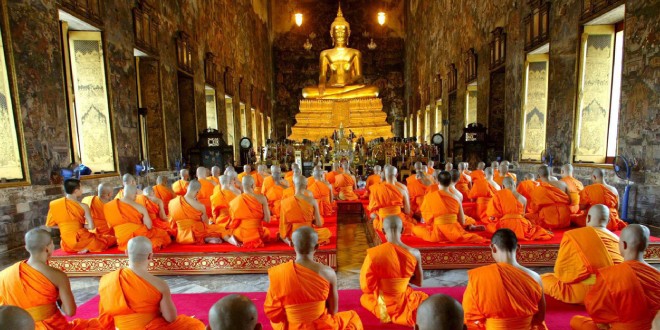There are many schools of Buddhism, such as Zen or Tibetan. Overall Buddhism does not condemn homosexuality. Buddhist countries also tend to have few social and legal prohibitions against homosexuality. Some, such as Thailand, are relatively free of homophobia.
The Dalai Lama, the most respected leader of a Buddhist sect, is ambiguous on the subject of homosexuality. All in all, Buddhism has been more gay-friendly than the major Western faiths. As homosexuality is not explicitly mentioned in any of the Buddha’s discourses (more than 20 volumes in the Pali Text Society’s English translation), we can only assume that it is meant to be evaluated in the same way that heterosexuality is. And indeed this may be why it is not specifically mentioned.
In the case of a man and woman where there is mutual consent, where adultery is not involved and where the sexual act is an expression of love, respect, loyalty and warmth, it would not be breaking one of the Precepts. And it is the same when two people are of the same gender. All the principles we would use to evaluate a heterosexual relationship we would also use to evaluate a homosexual one. In Buddhism we could say that it is not the object of one’s sexual desire that determines whether a sexual act is morally right or not, but rather the quality of the emotions and intentions involved.
However, the Buddha sometimes advised against certain behaviour not because it is wrong from the point of view of ethics but because it would put one at odds with social norms or because it is subject to legal sanctions. In these cases, the Buddha says that refraining from such behaviour will free one from the anxiety and embarrassment caused by social disapproval or the fear of punitive action. Homosexuality would certainly come under this type of behaviour. In this case, the homosexual has to decide whether she or he is going to acquiesce to what society expects or to try to change public attitudes.
Buddhist countries like Sri Lanka and Burma had no legal statutes against homosexuality between consenting adults until the colonial era when the British introduced them. Thailand, which had no colonial experience, still has no such laws. This led some Western homosexuals to believe that homosexuality is quite accepted in Buddhist countries of South and South-east Asia. This is certainly not true. In such countries, when homosexuals are thought of at all, it is more likely to be in a good-humoured way or with a degree of pity. Certainly the social challenges that the Western homosexual has so often had to endure is absent and this is due, to a very large degree, to Buddhism’s humane and tolerant influence.
 Lesbian, Gay, Bisexual, Transgender & Intersex News Lesbian News, Gay News, Bisexual News, Transgender News, Intersex News, LGBTI News
Lesbian, Gay, Bisexual, Transgender & Intersex News Lesbian News, Gay News, Bisexual News, Transgender News, Intersex News, LGBTI News




